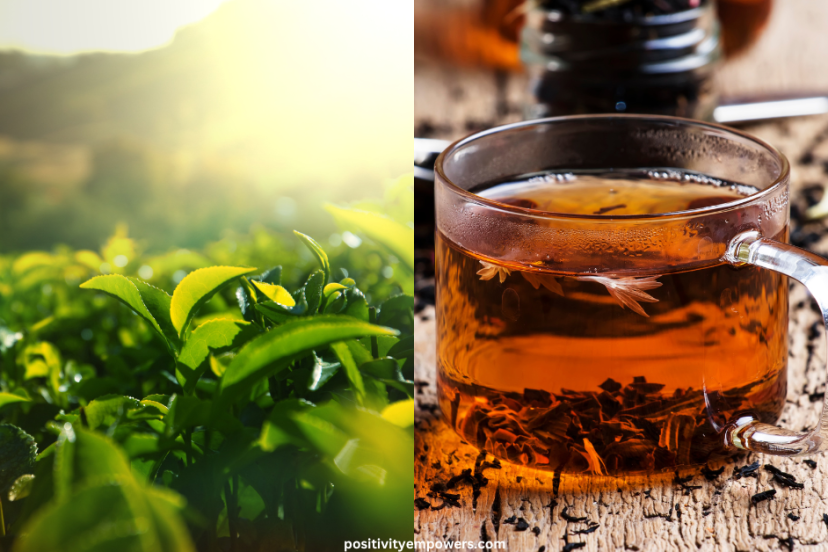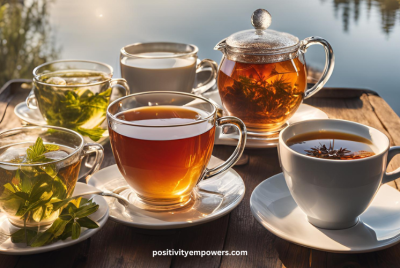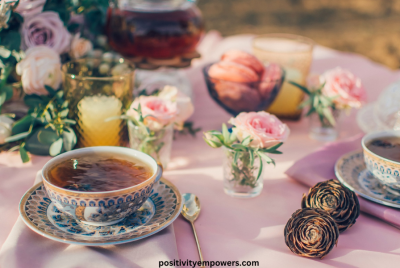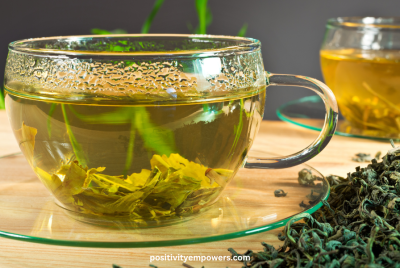Ceylon Tea – Experience an Exotic Journey to Wellness with Every Sip
Sharing is caring!
What is Ceylon Tea?
Ceylon tea is a remarkable type of tea that originates from the lush mountains of Sri Lanka, formerly known as Ceylon. This tea has captivated the hearts of tea lovers worldwide for its rich flavors, vibrant color, and unique aroma. With each sip, you experience a blend of tradition, quality, and nature’s goodness.
History and Origins
The story of Ceylon tea began in the 19th century when Sri Lanka, then Ceylon, first started cultivating tea. Introduced by the British during colonial times, tea quickly became a significant part of the island’s economy and culture. The natural climate, high altitudes, and rich soil of Sri Lanka have since contributed to making it globally famous.
Unique Characteristics
Unlike teas from other regions, Ceylon tea stands out for its distinct flavor profile, which varies from robust and full-bodied to light and mellow, depending on the region and type. Ceylon teas are often characterized by their briskness and delightful aroma, offering a unique experience for every tea enthusiast.
Types of Ceylon Tea – Benefits, Flavor and Caffeine Content
Coming in various types, each has its own flavor, benefits, appearance and caffeine content. Rich in antioxidants, these exotic teas helps combat oxidative stress and supports cellular health, promoting a youthful glow and stronger immunity. Let’s explore some of the most popular options:
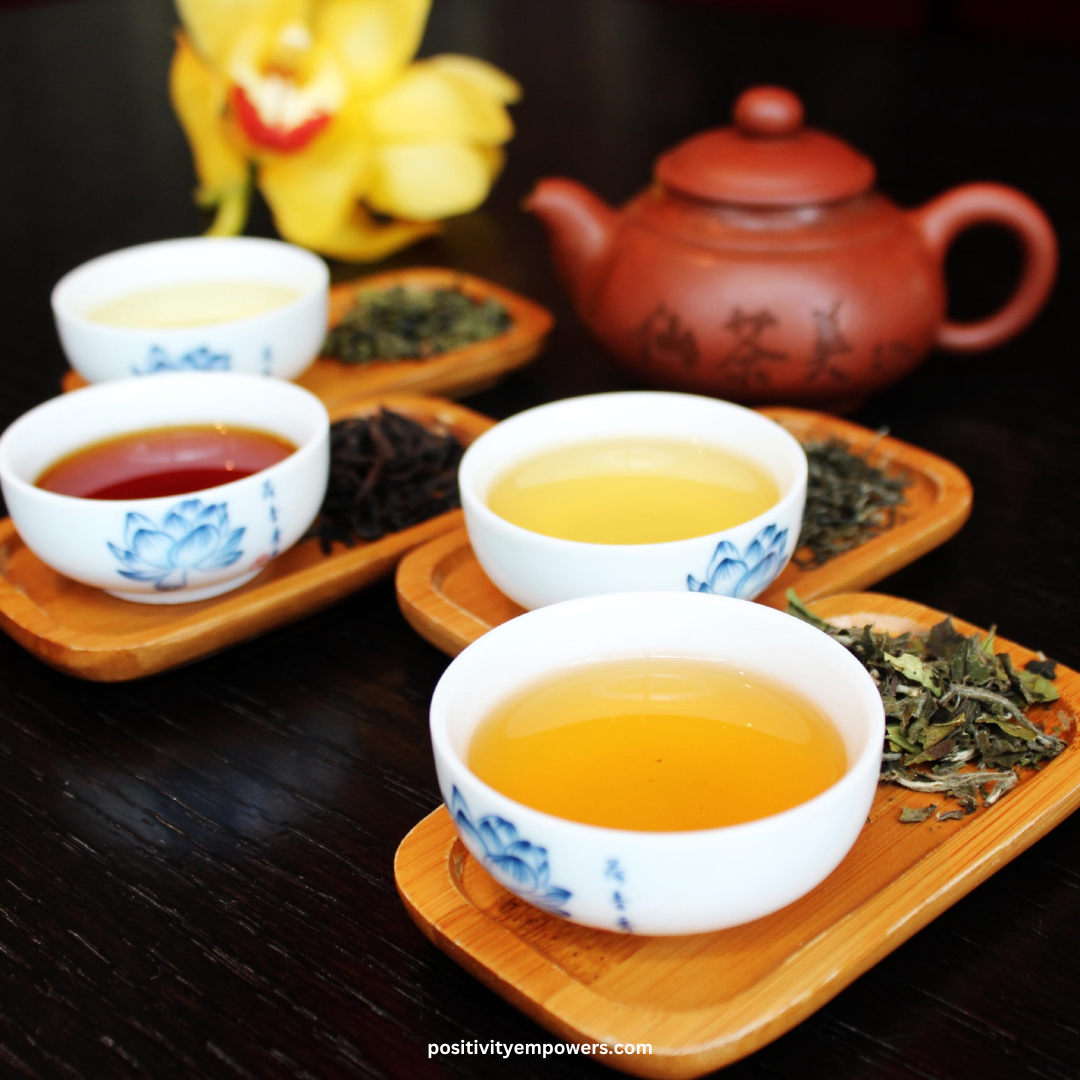
Ceylon Black Tea
Bold and rich, with hints of spice and sometimes a fruity undertone. It’s packed with antioxidants, making it great for heart health and improving digestion. Ceylon black tea contains the highest caffeine, typically ranging from 40 to 60 mg per 8 oz cup, making it a good choice for a morning boost or an afternoon pick-me-up.
Ceylon Green Tea
Refreshing and slightly grassy with a hint of sweetness. It’s known for its high levels of antioxidants, promoting good skin health and boosting metabolism. Ceylon green tea has moderate caffeine levels, generally around 20 to 40 mg per cup, offering a gentler option that’s great for sustained energy without the jitters.
Ceylon White Tea
Rare and delicate, with a mild, floral flavor. Known for its purity, it’s rich in antioxidants and polyphenols, beneficial for skin health and overall wellness. Ceylon white tea, the least processed, contains the lowest caffeine, often between 10 to 20 mg per cup, ideal for those who prefer a delicate flavor with a mild energy lift.
Ceylon Organic Tea Varieties
Layered and complex, with hints of citrus, mild spice, or subtle floral notes depending on the region and variety. This complexity and purity make it a favorite for those who appreciate unadulterated flavors, as each sip captures the richness of the Sri Lankan soil and environment, offering a smooth and refined taste that highlights the craftsmanship involved in its production.
For those who value purity, organic Ceylon tea is grown without synthetic pesticides or fertilizers. Choosing organic not only supports sustainable practices but also ensures a cleaner, chemical-free beverage. Without synthetic fertilizers or chemicals, the tea develops a clean, naturally robust taste, allowing the natural sweetness of the leaves to shine through without bitterness.
Loose Leaf vs. Bagged Varieties
The choice between loose leaf and bagged tea often comes down to flavor preference and convenience. Loose leaf varieties are typically of higher quality, containing whole or large pieces of tea leaves that preserve the tea’s essential oils, resulting in a richer, more complex flavor. It’s ideal for tea lovers who want the full-bodied experience.
On the other hand, the bagged version is convenient and easy to prepare, often using smaller leaf particles or fannings. Although the flavor may be milder, it’s a great option for those on the go or who wish a mild tasting version.
Cost of Ceylon Tea
The cost can vary based on the type, quality, and origin. Here’s what you can expect:
Price Range for Black, Green, and White Tea Varieties
Black tea is generally the most affordable, with prices ranging from $5 to $20 per ounce, depending on quality. Green and white versions are typically more expensive, with white tea being the priciest due to its limited availability. Organic versions usually cost more due to the higher standards in farming practices, typically ranging from $10 to $30 per ounce.
Price Differences Between Bagged and Loose Leaf Varieties
Loose leaf tea is generally more expensive than bagged tea due to the quality and size of the tea leaves used. Prices for loose leaf Ceylon tea range from $10 to $50 per ounce, depending on the variety and quality, with organic or rare types on the higher end.
Bagged tea, being more affordable, usually costs between $5 and $15 for a box of 20–30 tea bags. For tea enthusiasts who prioritize flavor, loose leaf tea can be worth the extra investment, while bagged tea remains a budget-friendly choice.
Price Differences Between Organic and Regular Varieties
Organic generally costs more than regular tea due to the stricter standards in cultivation and certification processes. While regular Ceylon tea typically ranges from $10 to $30 per ounce, depending on quality and region, organic varieties can start around $15 and go up to $50 or more per ounce for premium selections.
The higher price reflects the careful, chemical-free growing practices that ensure a purer, more sustainable product. For tea lovers who prioritize flavor and environmental impact, the organics varieties are often seen as a worthwhile investment.
How to Choose High-Quality Ceylon Tea
Look for certifications and labels indicating that the tea is genuinely from Sri Lanka. Authentic Ceylon tea often carries the Lion logo, a mark of quality and origin.
If buying online, choose reputable tea shops or websites that specialize in Ceylon tea. Locally, specialty tea stores often carry high-quality options and provide a more personalized buying experience.
Brewing the Perfect Cup
Brewing it to perfection enhances its flavors. Here’s how:
For black tea, use boiling water and steep for 3-5 minutes. Green tea requires slightly cooler water and a shorter steep time, around 2-3 minutes. White tea is best with water that’s just under boiling and a steep time of 4-5 minutes.
Final Thoughts
Ceylon tea, with its unique flavors, benefits, and history, is more than just a beverage; it’s a journey into the heart of Sri Lanka’s culture and heritage. Whether you’re drawn to its health benefits or simply the rich, satisfying taste, this exotic tea offers something for everyone.
FAQs
- What makes Ceylon tea unique?
Its distinct flavor and briskness, along with the influence of Sri Lanka’s unique climate, set Ceylon tea apart from others. - Is the organic vresion worth the cost?
Yes, organic tea is often cleaner and supports sustainable farming practices. - Can I drink it every day?
Absolutely! It’s safe for daily consumption and offers numerous health benefits. - How is it stored?
Store it in an airtight container, away from light and moisture, to preserve its freshness.

